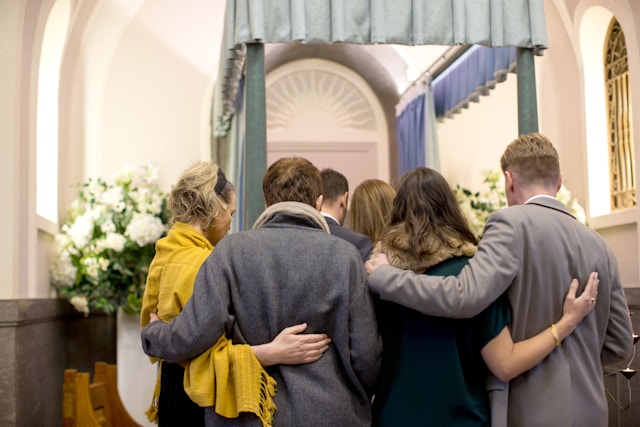When someone you know experiences the loss of a loved one, it can be difficult to know what to say or do. Grief is deeply personal, and navigating the social customs around bereavement requires sensitivity, empathy, and respect. Whether you’re offering support, attending a funeral, or reaching out in the days that follow, observing proper grief etiquette can help you avoid causing unintentional distress. Here are the key do’s and don’ts to keep in mind when someone has passed away.
Do: Reach Out with Compassion
A simple message or phone call can mean a lot. Let the grieving person know you’re thinking of them and that you’re there if they need support. You don’t need to have the “right” words—just being present and sincere is enough.
What to say:
- “I’m so sorry for your loss.”
- “I’m here for you—please let me know if you need anything.”
- “I don’t have the words, but I’m thinking of you.”
Don’t: Offer Clichés or Try to Fix It
Avoid saying things like “They’re in a better place” or “At least they lived a long life.” While often well-intentioned, these remarks can feel dismissive or minimising. Grief is not a problem to be solved—it’s an emotion to be supported.
Do: Respect the Family’s Wishes
Pay attention to any instructions provided in funeral notices or communications from the family – this may include dress codes, whether flowers or donations are preferred, or if the service is private. Any decent funeral director will ensure these wishes are clearly communicated, so mourners can honour them respectfully.

Don’t: Show Up Empty-Handed (If Visiting)
If you’re visiting the grieving person at home, it’s thoughtful to bring a meal, flowers, or something practical. Grief can be exhausting, and small gestures like these ease some of the daily burdens.
Do: Attend the Funeral or Memorial if Invited
Your presence can be a powerful show of support. Be punctual, dress appropriately, and turn your phone off or on silent before the service begins. Participation in the rituals—signing the guest book, joining a procession, or observing a moment of silence—should be done with genuine respect.
Don’t: Post About It on Social Media Without Permission
Unless the family has made a public statement or shared the news themselves, refrain from posting about the death or the funeral online. Social media announcements should always come from the immediate family first.
Do: Check In Weeks and Months Later
Grief doesn’t end after the funeral. Many people experience a wave of loneliness once the immediate support fades. Checking in after a few weeks—or on anniversaries—can make a real difference.Examples:
- “I’ve been thinking of you—how are you going today?”
- “Just wanted to let you know I’m here, even now.”

Don’t: Avoid the Grieving Person Because You Feel Uncomfortable
It’s common to feel unsure of what to say, but silence or avoidance can make the bereaved feel isolated. A warm hello, a hug, or a quiet presence says far more than the perfect words ever could.
Supporting someone in grief isn’t about having all the answers—it’s about showing up, listening, and honouring their loss with genuine kindness
If you’re ever in doubt, remember that compassion, respect, and sincerity are the best guides.For families navigating the complex emotions and customs surrounding death, Greenhaven funeral directors offer compassionate, culturally sensitive care every step of the way.





